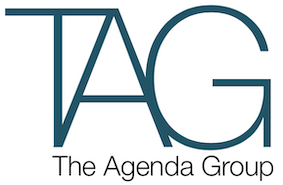Betting on the result of Australian Federal elections is a legal activity with a number of licensed bookmakers having offered a variety of betting opportunities. But now that the bets have been paid out, what should the gambling industry be preparing for?
The Coalition’s published gambling policy has four specific aims:
- Proceeding with voluntary, rather than mandatory, pre-commitment for poker machines
- More counselling and support services and better research
- Effective self-exclusion programs
- A stronger online gambling environment.
It is not a detailed policy, but the brief explanation provided gives a flavour of what to expect. Under each of the first three dot points the policy emphasises the role of the Australian States and Territories, the traditional regulators of gambling in Australia, and includes a statement that the “Coalition will shut down the national gambling regulator”. If this proceeds, it would take Australia back to a structure in place prior to the 2010 Federal election where the Federal Government had no role in the regulation of poker machines. Anti-gambling advocates will be highly critical arguing that the States cannot be trusted because of their vested interest as beneficiaries of gambling taxes. But these voices, while getting coverage in the media, would appear unlikely to prevent a return to State-based management and regulation of gambling matters.
Under the heading “A Stronger Online Gambling Environment”, the policy states that, “The Coalition does not support proposals…to relax online gambling regulation” and “the Coalition will investigate methods of strengthening the enforcement of the Interactive Gambling Act…” This would seem to suggest the current restrictions on online gambling in the Interactive Gambling Act will remain. However, because the policy position is couched in the language of harm minimisation requirements and significant risks to users, it is possible that a Coalition government may ultimately conclude that the safest option for online gamblers is to work towards a better regulated local online gambling sector rather than the blanket ban which currently exists.
What is often overlooked is that the States and Territories already have legislation in place to regulate online gambling. This legislation, which was drafted in the late-1990s to provide for a system of complementary regulation between the States and Territories, is inactive because the Federal legislation overrides it. But should the Government choose to do so, it could argue it is strengthening online gambling regulation by repealing what it would suggest is the ineffective Interactive Gambling Act and transferring the regulation of interactive gambling back to the States and Territories with their more robust regulatory schemes.
A separate issue raised under the fourth dot point of the Coalition’s policy is the advertising of sports betting. The Coalition policy states its preference for “self-regulation over government regulations” but also states a willingness for Government intervention if self-imposed industry restrictions are ineffective.
These policy statements are only part of the story. As any legislative changes supported in the lower house are still required to be approved by the Senate, those Coalition policies which require legislative changes are not necessarily guaranteed to make it into law.
Nevertheless, much of the new Government’s policy can proceed without requiring the support of the Senate. Voluntary pre-commitment, more counselling and support services, better research and more effective self-exclusion programs can all be implemented without having to go near the Federal Parliament, particularly if the Government transfers responsibility for all these measures back to the States and Territories. Similarly, if the betting industry satisfactorily self-regulates there would be no need for the Government to proceed with legislation to restrict betting advertising.
Conversely, should the Government decide to make amendments to the Interactive Gambling Act, such as those the betting industry would support which would allow in-play bets to be placed over the internet a recalcitrant Senate may block such changes. Similarly, the Senate would likely prevent the Interactive Gambling Act from being repealed.
Should the Senate be too obstructive (and not just about gambling legislative changes) there is a possibility of the Parliament being dissolved earlier than anticipated and the Australian people being asked once again to vote. If this were to happen, gambling will once again come to the fore with the betting agencies framing markets on an electoral outcome as the cycle begins once again.
